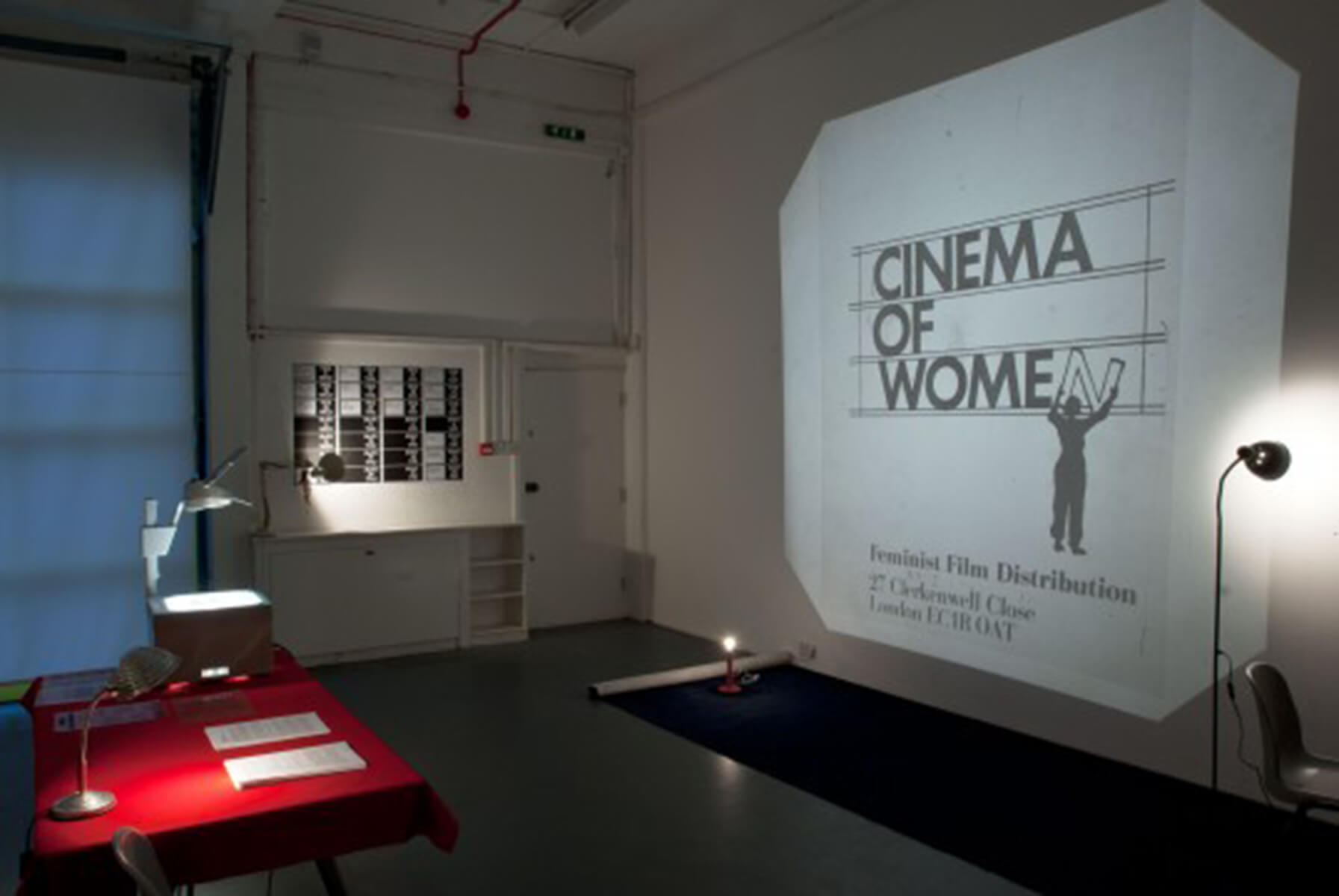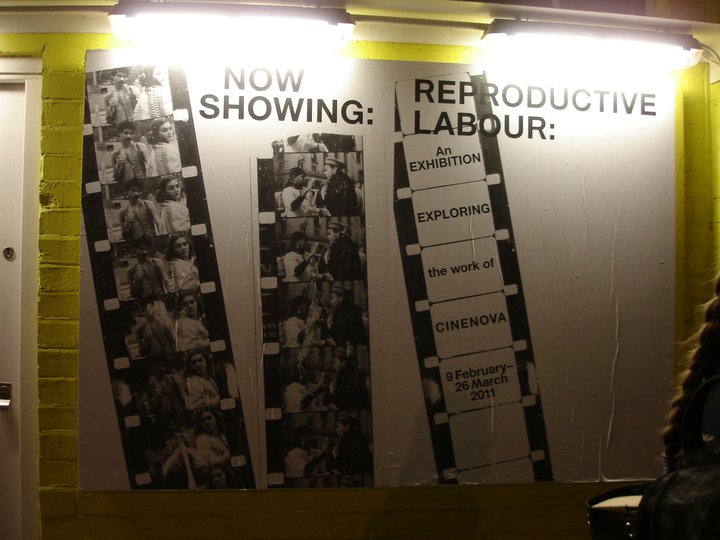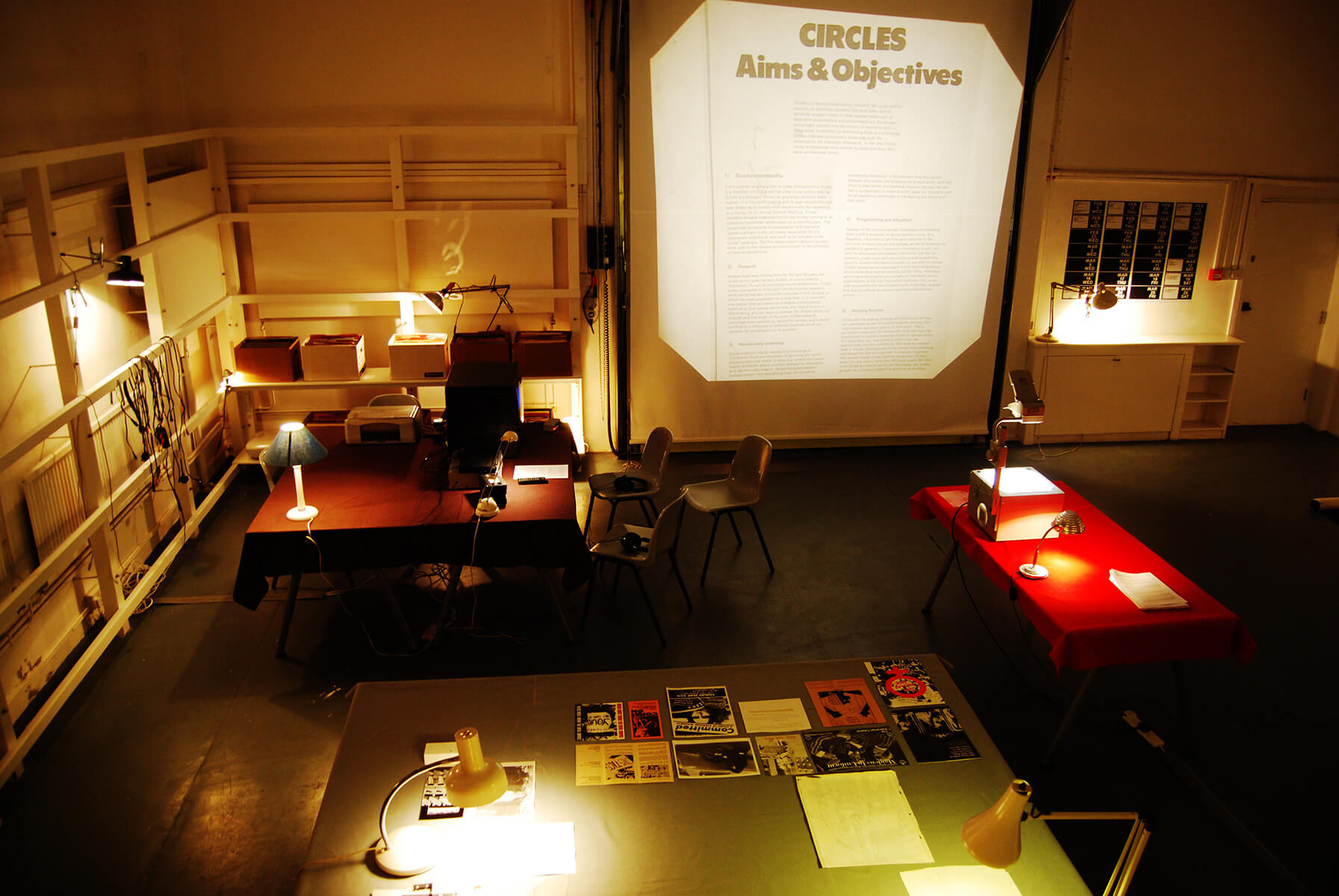Cinenova Working Group
With Cinenova
Cinenova is a volunteer-run organisation based in London dedicated to preserving and distributing the work of women/feminist film and video makers. It was founded in 1991 following the merger of Circles and Cinema of Women, each formed in the early 1980s. Cinenova currently distributes over 500 titles that include experimental film, narrative feature films, artists’ film and video, documentary and educational videos made from the 1920s to the present. The thematics in the work at Cinenova include oppositional histories, post-colonial struggles, domestic and care work, representation of gender and sexuality, and importantly, the relations and alliances between these different struggles.’ http://cinenova.org//
Since 2012, I have been a member of the Cinenova working group. The group seeks both to keep the collection together and to distribute the films. What we understand as distribution, besides sending out the films, is the compilation of film programmes and exhibitions, the collaboration with individuals and groups, as well as watching films as a social practice. In the following, I would like to introduce some of the projects.

Exhibition Reproductive Labour, The Showroom, London, 2011
WHAT'S YOUR OBJECT / SUBJECT?
An Event by CINENOVA with Karolin Meunier and Sandra Schäfer
Monday, 18 March 2013, 14 – 16, Akademie der bildenden Künste, Vienna.
CINENOVA DISTRIBUTION is a volunteer-run organisation in London dedicated to preserving and distributing the work of women/feminist film and video makers since 1991. It currently distributes over 500 titles that include experimental film, narrative feature films, artists’ film and video, documentary and educational videos made from the 1920s to the present. The thematics in these titles include oppositional histories, post-colonial struggles, reproductive labour, representation of gender and sexuality, and importantly, the relations and alliances between these different struggles. http://cinenova.org/
In September 2013, Cinenova will carry out an exhibition at the Kunsthalle Exnergasse. With this event at the Akademie der Bildenden Künste, we introduced and discussed the organisation and its way of working based on films from the collection. We invited all students and lecturer interested in the project, as well as our possible partners for future collaborations from Vienna and Linz.
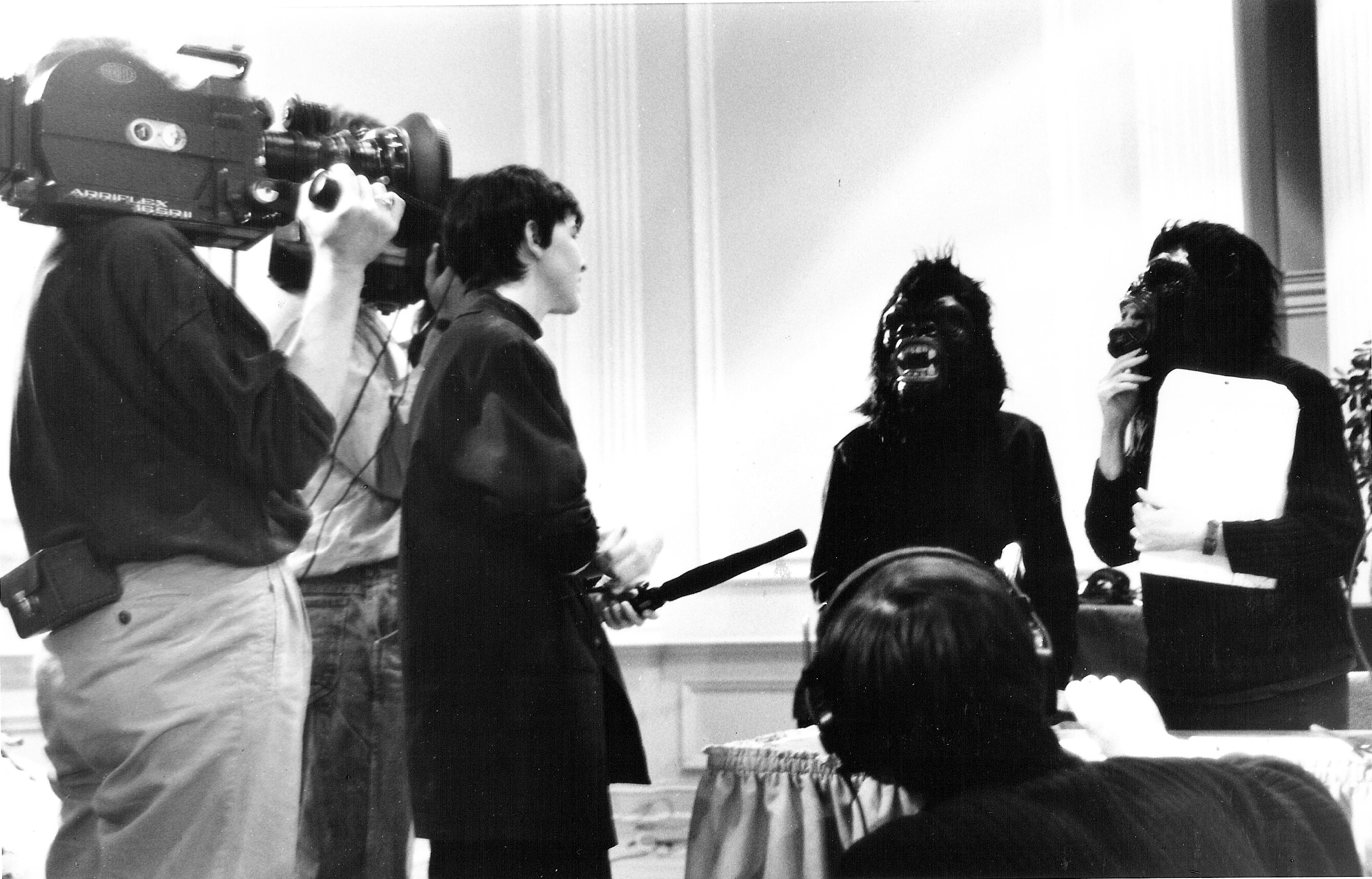
Guerilla In Our Midst, Amy Harrison, 1992.
the elsewhere and the here
Cinenova Film festival, Salong, Munich, 2012
The film programme the elsewhere and the here presents two films: The Third Woman by Mitra Tabrizian from 1991 and Hidden Faces by Kim Longinotto from 1996. In both films, the protagonists follow a path. In The Third Woman, the protagonist travels from Tehran to London, driven on by a political motivation that overlaps with an erotic desire. In Hidden Faces, the protagonist moves from Paris to Egypt, where she calls on the feminist author Nawal E’Saadawi. In both films, these encounters trigger disappointment which leads to unexpected turns.
Tabrizian draws an artificial scenario with surreal scenes, indicating the internal imaginations and desires of the main character. Longinotto, however, accompanies the protagonist Safaa Fathay and shows how Fathay turns away from the feminist icon Nawal E’Saadawi and turns to the power relations and contradictions in her own family and amongst her own friends.
The film programme the elsewhere and the here is part of a film festival on Cinenova. The festival was organized by the group Salong at the Art Academy in Munich. The festival continues the collaboration between the artists’ group Salong and the Cinenova working group that began during the Group Affinity summer school.
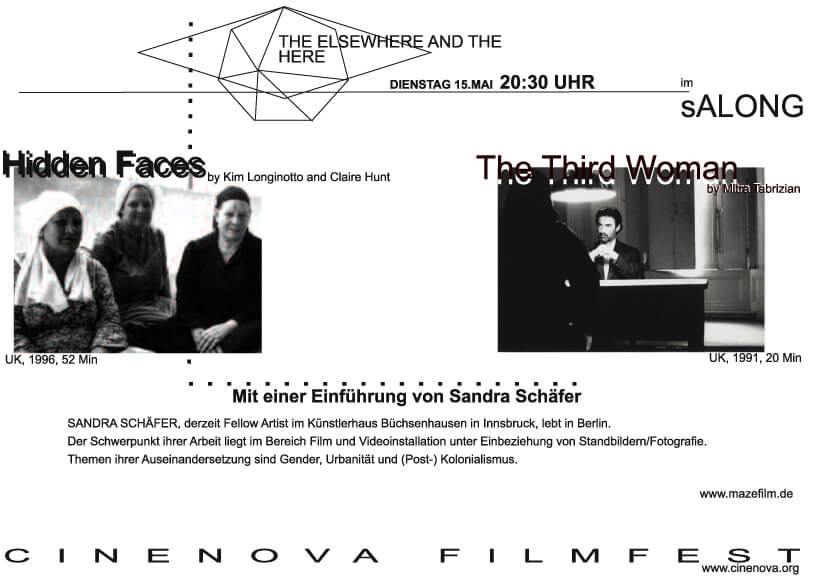
The Body Is the Locus of Politics, and of Rhythm
Globale film festival, Berlin, 2011
The programme represents Cinenova in its diversity and highlights certain aspects of feminism, racism, and post colonialism: A silent film by the female pioneer director Alice Guy Blaché on gender stereotypes, British filmmaker Sandra Lahire’s strong visual language reflecting society’s pressure on the female body, and a documentary by Prathiba Parmar addressing feminism, racism and solidarity between different radical civil rights movements in the US during the 1980s.
Programming together with Melissa Castagnetto and Karolin Meunier.
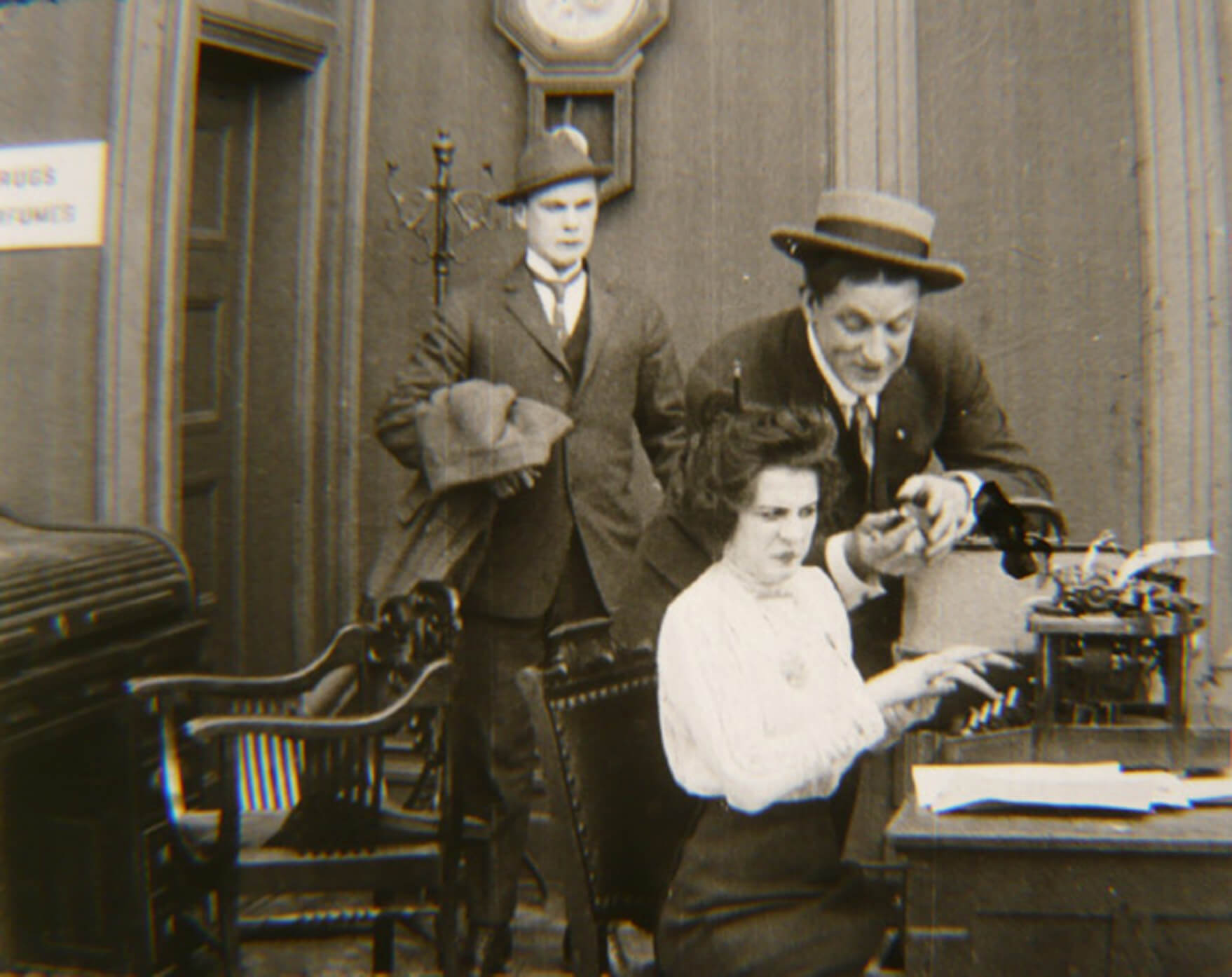
A House Divided, Alice Guy Blaché, 1913
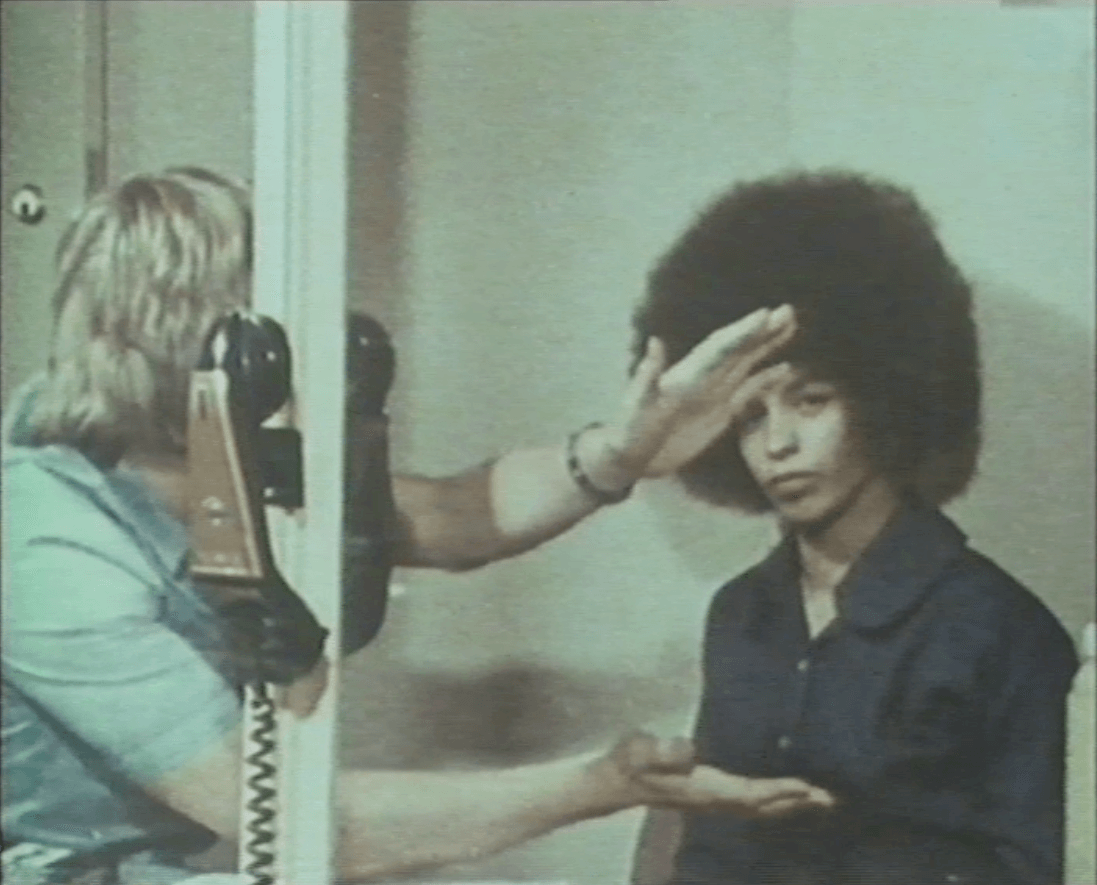
A Place of Rage, Pratibha Parmar, 1991
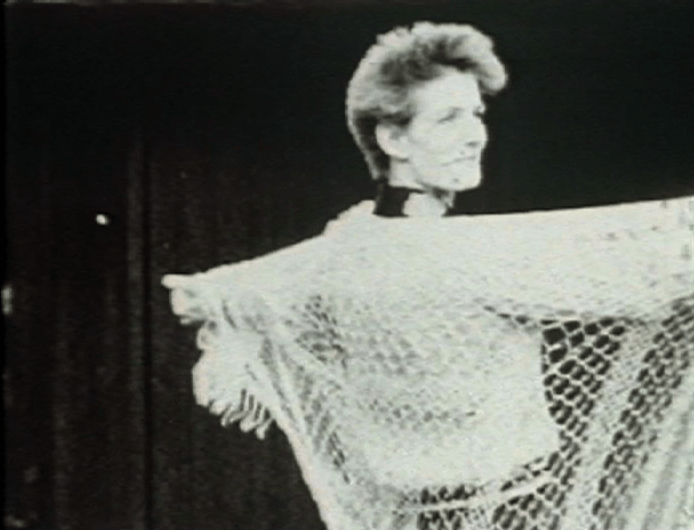 Arrows, Sandra Lahire, 1984.
Arrows, Sandra Lahire, 1984.
Cinenova Group Affinity
Kunstverein Munich, 2011
Group Affinity was a summer school and exhibition that took place at the Kunstverein Munich in August 2011. In addition to other artists’ initiatives, the Cinenova working group was also invited. Together with participants from London, Munich, Glasgow and Berlin, we provided access to the films of the Cinenova collection. We discussed and reflected on feminist film production and collective working practices.
In the framework of the summer school, I presented different collaborative filmic methods based on a selection of films and discussed questions related to the production of representation.
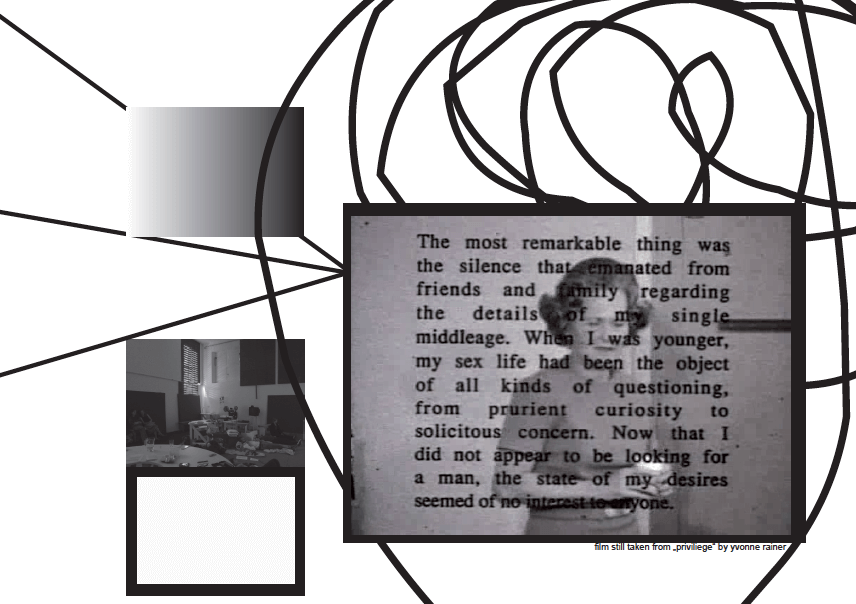
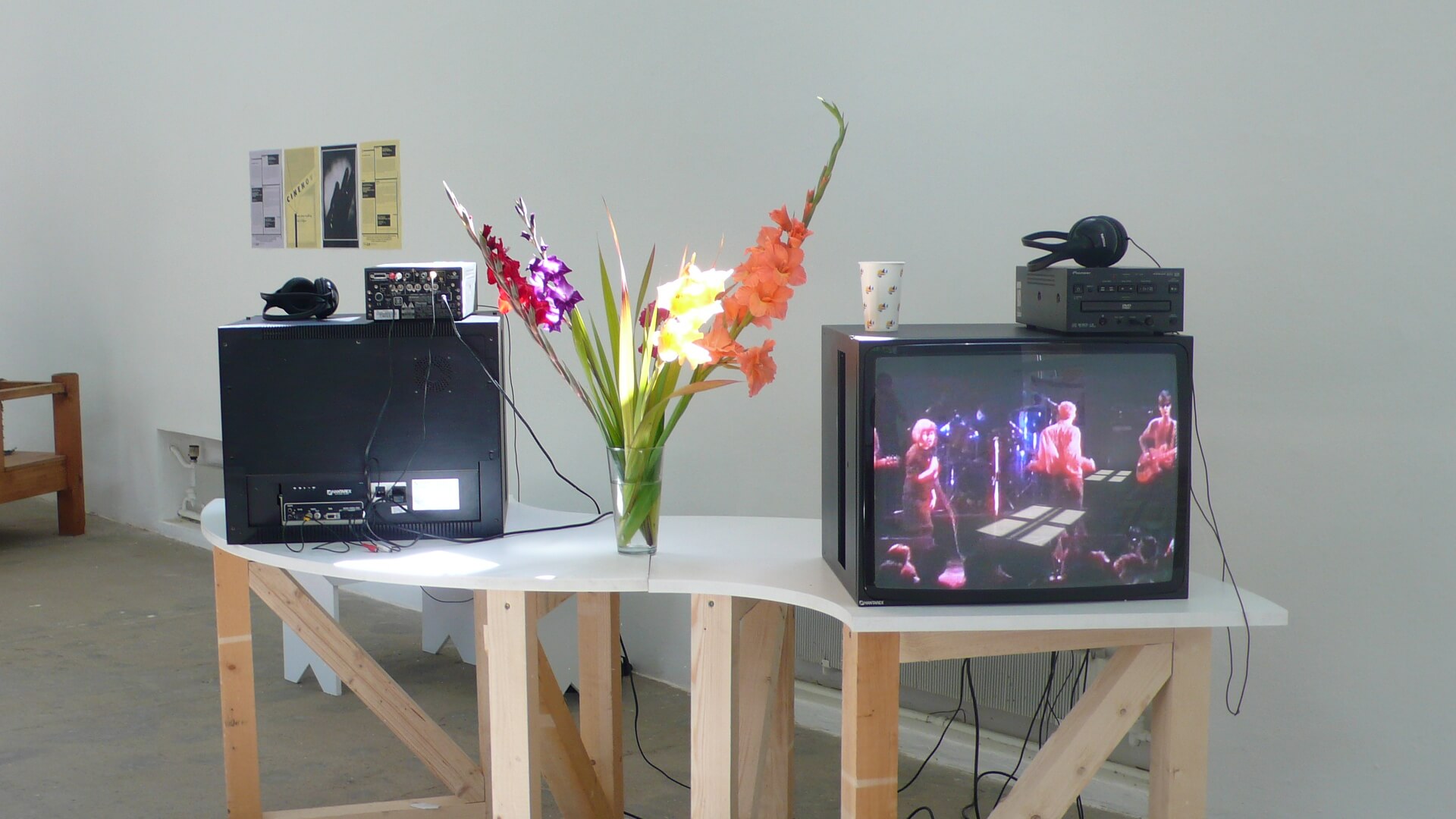
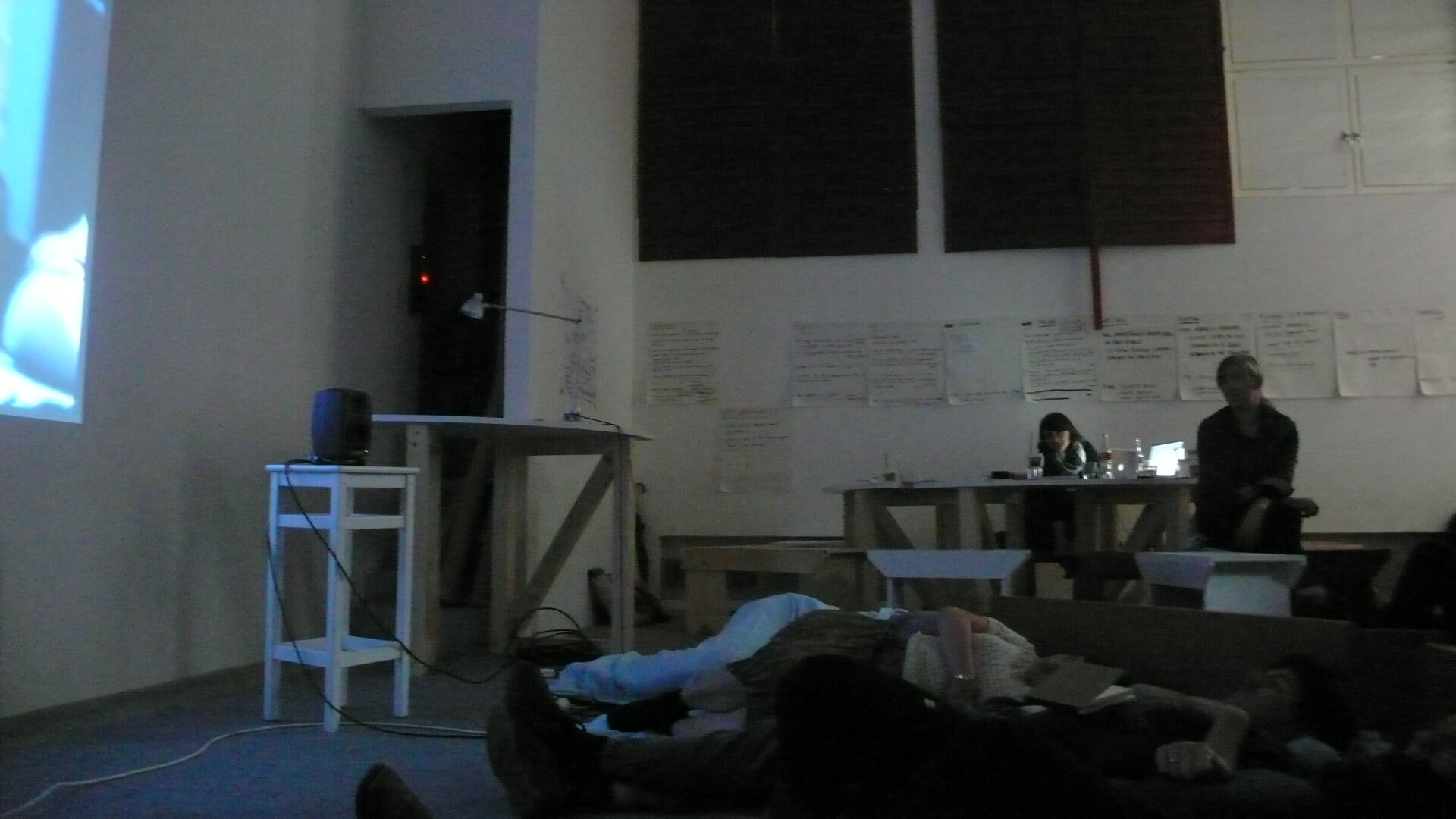
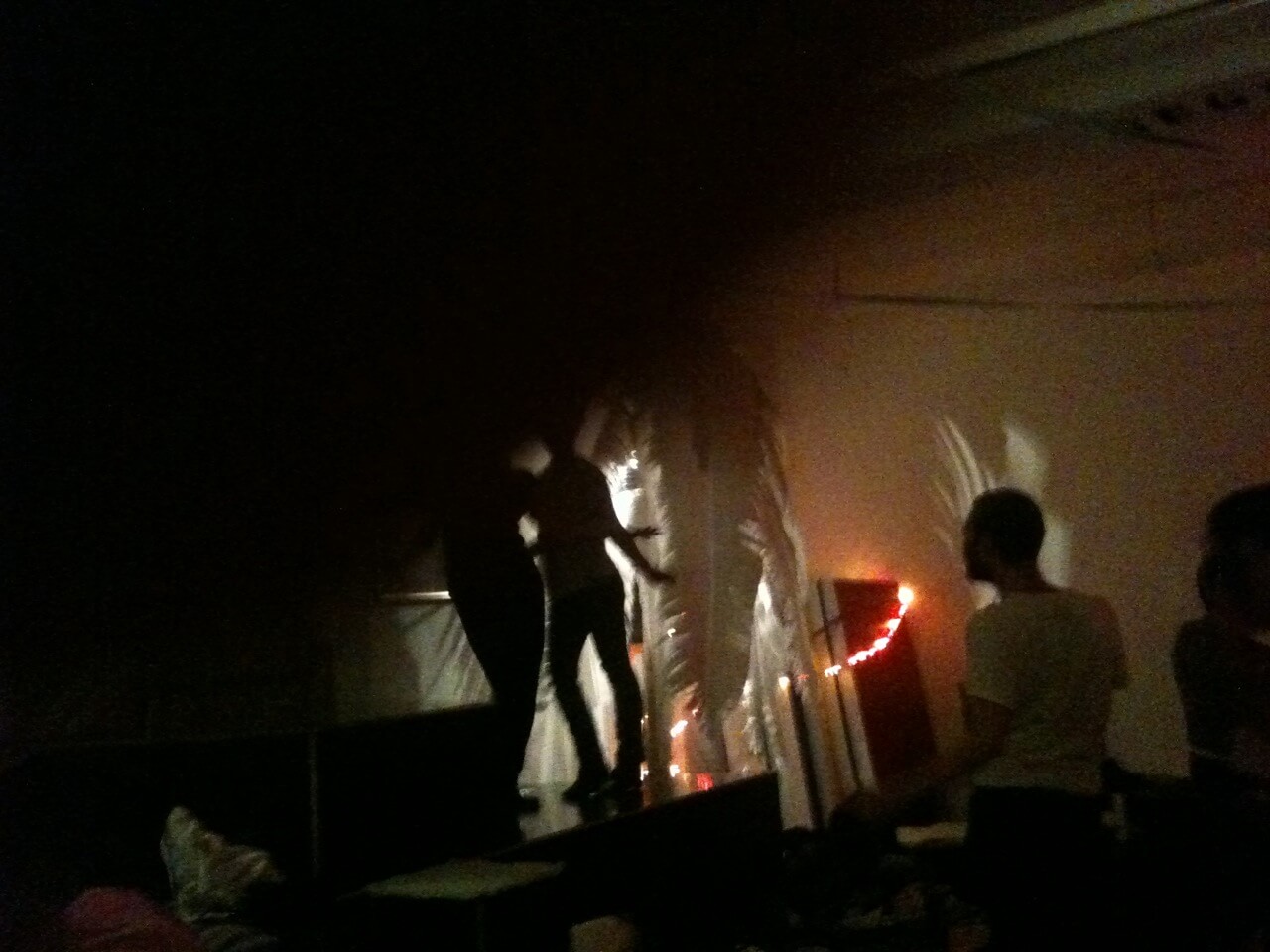
Cinenova, Group Affinity, 2011
Melissa Castagnetto, Megan Fraser, Irene Revell together with Karolin Meunier and Sandra Schäfer
Reproductive Labour
The Showroom, 2011
Reproductive Labour was an exhibition that centred around the films, videos, politics and discussions that make up Cinenova – a volunteer-run, charitable organisation dedicated to preserving and distributing the work of women/feminist film and video makers.
In the exhibition Reproductive Labour, Cinenova’s films, videos and paper materials were worked on and displayed in a number of ways. Invited selectors nominated a work from the collection that was featured daily. Bringing these together with a series of further screenings and events, this formed a rare opportunity to watch and research pivotal works from the history of feminist, black, queer and experimental film and video, and together consider how they activate the present.
Through the course of the exhibition, visitors were encouraged to use the Cinenova catalogue and paper archive to find out more about certain films and videos, and to select titles that they'd like to see during the exhibition. It was possible to request the tape or DVD from workers from Cinenova and The Showroom, who were in the space at all times. It was possible to photocopy some of the paper materials on the machine, and to ask the person present to help.
If visitors wanted to organise a discussion or screening in the space or elsewhere they could email the Cinenova working group at info@cinenova.org.
In the framework of the exhibition I organized together with the filmmaker Kim Longinotto and the legal anthropologist Ziba Mir-Hosseini the event Broken Taboos & New Voices in Iran. In this event the two of them presented a selection of clips from their films and reflected on their collaboration. In addition recent developments and changing gender relations in Iranian society,
and the intimate links between sexuality and democracy were discussed.
